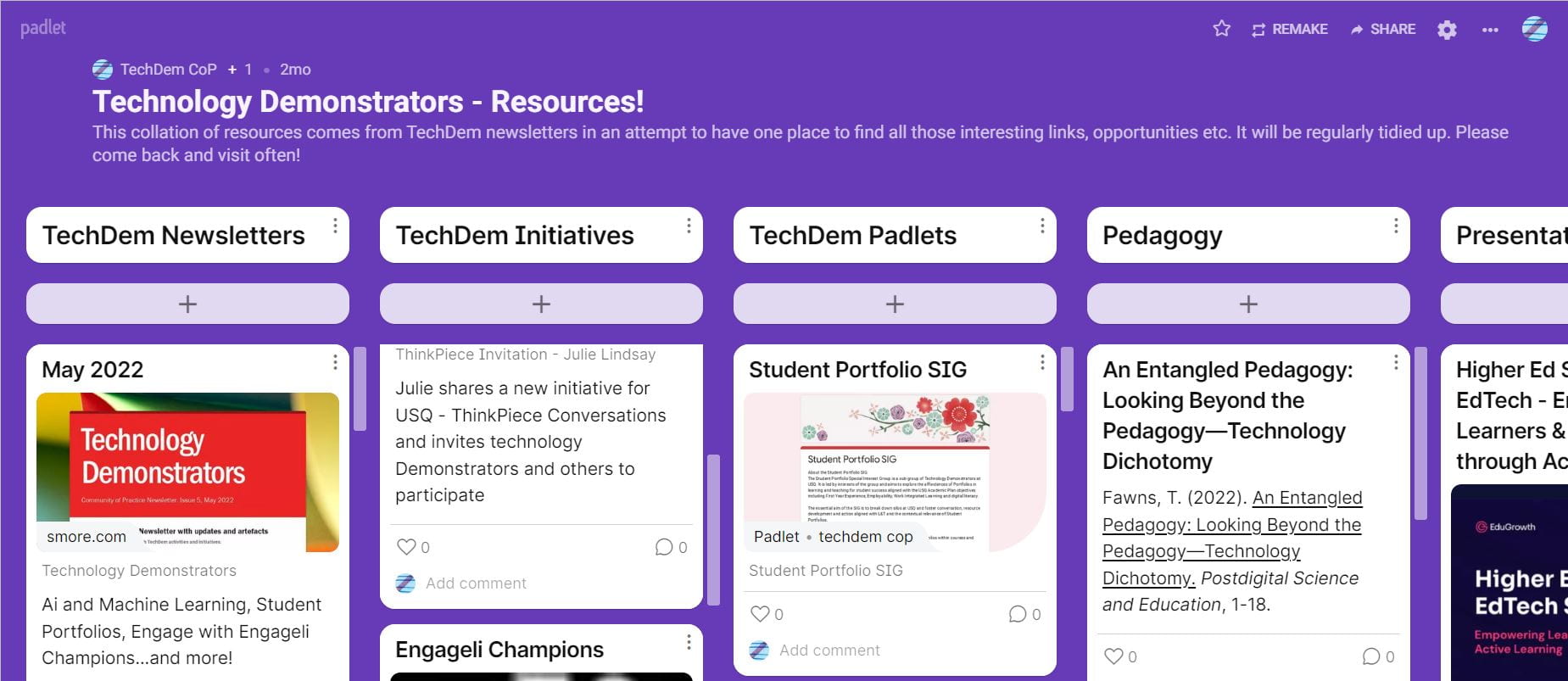
Conversations
Padlet and Cognitive Presence

As you know, Padlet is sweeping UniSQ by storm. There’s not a StudyDesk, professional development session, or collaboration space that isn’t harnessing the potential of this intuitive and visually dynamic tool.
If we use the language of the Community of Inquiry framework, Padlet has been used with great success largely for the facilitation of social presence. It is routinely used to connect students to other students: Introduction Padlets. Feedback Padlets. Brainstorm Padlets. The list goes on…
Part of what we do at TechDems is test the limits of online learning tools – identifying how and when they are used best. Though I recently blogged about Padlet winning Tech of the Year, I have to confess that a digital learning initiative recently found that even Padlet has its limits.
As part of her Digital Learning Initiative, Helen Russell, lecturer in contemporary music, sought to improve student engagement with course content, in a foundation music course. Essentially, we were asking if Padlet could promote cognitive presence. Certainly, the social constructivist principles which underlie the Community of Inquiry framework would suggest that collaboration is essential to learning and that there is clear overlap between social presence and cognitive presence. However, despite following best practice principles, the Padlets did not elicit any more posts than would traditionally have been found in StudyDesk forums.
Does that mean Padlet can’t be used to promote cognitive presence? Or are there other take-aways from this initiative?
What can we learn from this digital learning initiative?
- First, we can learn that patience is key in trialling new technologies. Each time we trial a new tool, several attempts may be needed before we can refine our use and test its full capacity. (I’m pleased to say Helen is continuing to use Padlet.)
- We can also learn the importance of context when assessing the impact of new technologies. Helen’s cohort were small in number and her social forums only received two posts, suggesting a hesitancy around collaboration and posting.
- Finally, we can embrace the importance of experimentation. Though the engagement from students did not match our expectations, the Digital Learning Initiative was a success because Helen was willing to learn and trial new technologies that can be utilised in different ways to enhance student engagement, learning, and experience.


0 Comments